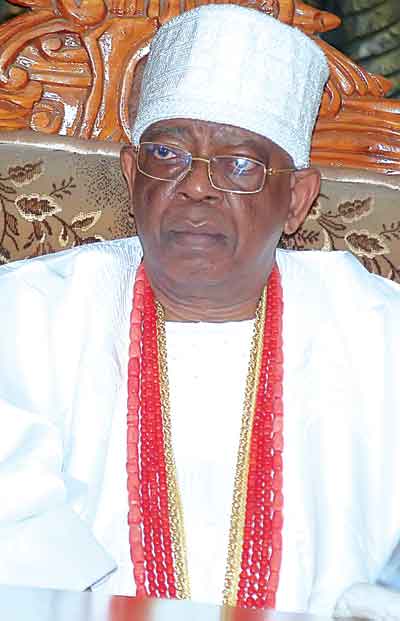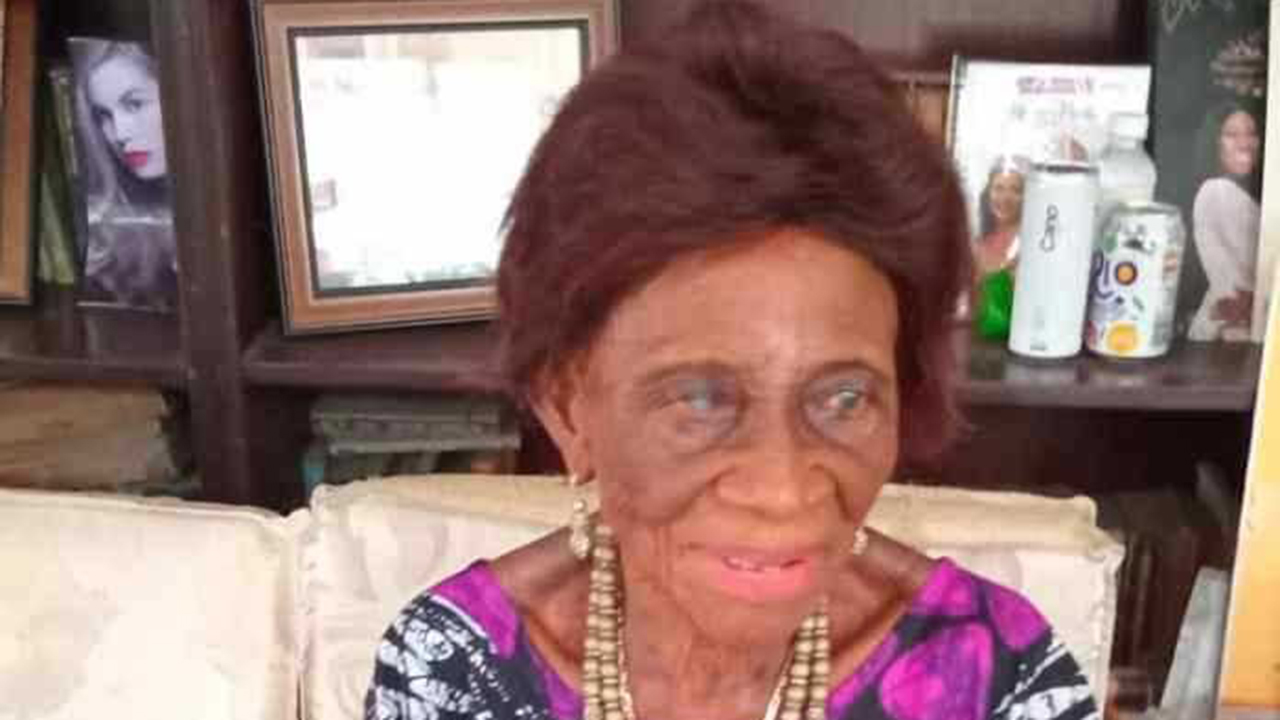
BY tomorrow, the baron of the Nigerian capital and money market, Otunba Michael Olasubomi Balogun will mark his 81 birthday. And for a philanthropist, who has attained enviable height in the society and contributed immensely in building institutions that would surely outlive him, attaining the ripe old age of 81 is an appropriate time to give thanks. As for those, who have in one way or the other benefited from his benevolence, now is a perfect time to celebrate this hardworking Nigerian, who has used his wealth to serve mankind.
Born March 9, 1934, at Ijebu-Ode in Ogun State Otunba Balogun had his secondary education at Igbobi College, Yaba, Lagos, where he passed the Cambridge School Certificate in Grade One in 1952.
Though his parents were Muslims, young Subomi converted to Christianity during his days at the Igbobi College and has remained committed to his faith.
“I was drawn to attend service. Incidentally, my late mother was educated; I confided in her that I was going to convert to Christianity. The late Bishop Segun, who was a priest at Porogun Church in Ijebu Ode, converted me at the age of 13. Having accepted Jesus, I just found myself loving Him. I was confirmed at the age of 19,” he said.
After his secondary education, young Subomi worked as a secondary school teacher for one year, before proceeding to the London School of Economics (LSE) in 1956 to read Law, having passed with distinction (three subjects) at the GCE Advanced Level.
“As a student at the Nigerian College of Arts, I joined the Students Christian Movement; the late Bola Ige was our president. Even while I was in London, every Sunday, I would go to church to worship. That was how I got to know General Gowon; we were staying in the same hostel,” he recalled.
Otunba graduated from LSE with Second Class Honours Degree in June 1959, and was called to the English Bar in December of the same year. Under the sponsorship of the then Western Regional Government, he became the first Nigerian to receive special training in Legal Drafting in Whitehall and the City of London, with particular specialisation in financial legislation, instruments and agreements. He later served as a Crown Counsel in both the Ministry of Justice of the then Western Nigeria and subsequently, as Assistant Parliamentary Counsel in the Federal Ministry of Justice in Lagos.
For nine years (between 1966 and 1975) Otunba Subomi was the Principal Counsel and Company Secretary to the Nigerian Industrial Development Bank (NIDB). During this period, he received extensive training at the International Bank for Reconstruction and Development (IBRD), otherwise known as the World Bank, and its private sector affiliate, the International Finance Corporation (IFC), both in Washington DC. He also received extensive training from leading stockbrokers, investment banks and merchant banks in London and New York.
In 1973, he was appointed the Director in charge of the operations of Icon Securities Limited, a wholly owned subsidiary of NIDB. He later teamed up with other colleagues, under the direction of the then Managing Director of the NIDB, to convert Icon Securities into a merchant bank. He was also instrumental to the establishment of Icon Stockbrokers Limited, a foremost stockbroking firm, which he subsequently headed.
Following the establishment of Icon Limited (Merchant Bankers), this quintessential personality was seconded to the bank as an Executive Director. He resigned in December 1977 to set up his own company, City Securities Limited, which was the first institution in Nigeria to combine Issuing House and Stockbroking businesses under one roof.
In 1979, he single-handedly decided to set up the first wholly Nigerian owned merchant bank christened First City Merchant Bank Limited. Under his leadership as Chairman & Chief Executive, First City Merchant Bank Limited (FCMB) in its first twenty years of existence, experienced steady and un-interrupted growth and earned national and international recognition as market leaders in investment banking and capital market services. The bank’s paid-up share capital grew from N2 million at inception to N1.5 billion, while total shareholders fund rose to N2.65 billion as at December 2002.
A man of many parts, Otunba Balogun is a constructive philanthropist. Apart from his well-known commitment to the welfare of the less privileged and physically handicapped, in 1987, he was the first in Nigeria, through First City Merchant Bank Limited, to endow a Professorial Chair in a University at the University of Ibadan. He also endowed a Research Fellowship in the Legal Department of the University of Lagos, and equally donated to several altruistic causes in a number of institutions.
Otunba’s love for children manifested in 1989, when he donated to the Ijebu-Ode General Hospital a newly-built and fully-equipped air-conditioned 40-bed Children’s Centre, which he named after his mother, Iye Subomi’s Child Care Centre, and also made provision for the perpetual maintenance of facility.
About twelve years ago, his love for mankind led him to establish an umbrella organisation known as Otunba Tunwase Foundation to cater for all his philanthropic endeavours and services to the community. Under this Foundation, and on his 60th birthday, he commenced the construction of a special gift to the nation, the Otunba Tunwase National Paediatric Centre (OTNPC). This is a referral institution to cater for the health care, survival and welfare of the Nigerian Child and to provide an avenue for specialised studies and academic researches into all manner of children diseases and ailments.
In 2013, the astute banker announced plans to donate the pediatric centre wholly to the University of Ibadan for teaching, research and health care delivery for infants, children and by extension their mothers.
Like most Nigerians, Otunba Balogun had his own challenges. In his career, there were so many battles, some of which would consume any mortal, but somehow, he managed to survive. Notable among such trying moments was when he aspired to become Secretary of the Nigerian Industrial Development Bank (NIDB).
“Someone said, ‘Balogun can only become Secretary of NIDB over his dead body.’ I was scared, but I still continued praying. Do you know that that person died in the first coup and his appointee also died in an accident? I was worshipping in the cathedral when an Indian gentleman walked up to me and said, ‘I think I have seen your face before.’ I told him that his face was also familiar and asked who he was. He introduced himself as the General Manager of NIDB. I told him that I was in his office for an interview. He told me that the position would be re-advertised. It was and I got the job,” he recalled.
Even at the time he announced plans to set up his bank, there were stumbling blocks. To many people, it was unheard of, while those, who thought he was going to use the financial institution to support a particular politician, moved against his getting a licence. But for the intervention of the then Vice President of Nigeria, Dr. Alex Ekwueme, FCMB would have remained a dream.
“We had been friends before he joined politics. So, one day, he was coming to the cathedral and I planned with my wife that we were going to waylay him. While he was coming down the aisle, I broke the cauldron and pulled his clothes, while my wife pulled his wife’s clothes.
“I told him, ‘Mr Vice President, where is my licence?’ He said I should see him at Dodan Barracks. When I saw him he told me those who were opposed to my getting a licence. He told me that I should not worry my head that he would handle it at the Federal Executive Council meeting. The following Thursday, Alex asked Chief Yomi Akintola, Finance Minister to telephone me that my licence had been granted. I am just giving you some landmarks that convince me that I am a chosen child of God,” he enthused.
A true grandmaster, he voluntarily came out of retirement to lead the campaign to raise the compulsory share capital N25billion as stipulated by CBN, an adventure that earned him the title, grandmaster.
“I told a highly revered statesman that I wanted to come and see him to sell some of our shares to him. He said, ‘you have been selling other people’s shares, now you are coming out of retirement to sell your own?’ I said, “yes.” He said, “do you play chess?” I said, “I don’t play chess.” He said, “that is what we call the Grandmaster.” I liked that name and I asked that T-shirts be made for everybody. Many people did not give us any chance, but our shares were oversubscribed; we even ended up acquiring six banks,” he noted.
Today, Otunba has resolved to spend the rest of his life giving service to God and humanity. At every point in time, he seeks opportunity to show appreciation.
“I am not asking for anything again in life; all the beautiful things of this life, God has given me. I now have a duty to devote the rest of my life to serve my God, to serve humanity and to continue to do things because at the end of the day, none of us will drive a Rolls Royce to the grave. You won’t carry your house to the grave. When the final call comes, you will just open your hands and say, ‘God, here I am.’ To be able to do that, you need the grace of God,” he noted.
Happily married to Olori with four children, Otunba believes God made the union.
“She had just left St. Annes and was going to further her studies when we met. I told my friend Taiwo, “look at that young girl coming, I am going to date her and mould her to what I want.”
When he noticed that she was having interest in him, he proposed formally.
“I told her, ‘I’m a Prince and you will be an Olori. I served a notice on all my friends, ‘this is the lady I am going to marry, call her Olori.” Since then everybody has been calling her Olori. This was before I was made Otunba,” he recalled.
A man of style, Otunba is particularly in love with white.
“People talk about my wearing white. I just felt at a point in life that I wanted to be pure and the nearest to purity is white. So, I choose white as my colour. Beyond houses, my cars, everything… is white. Style has to do with being enlightened. Style is something unique to you, something that can be ascribed to you alone.”






